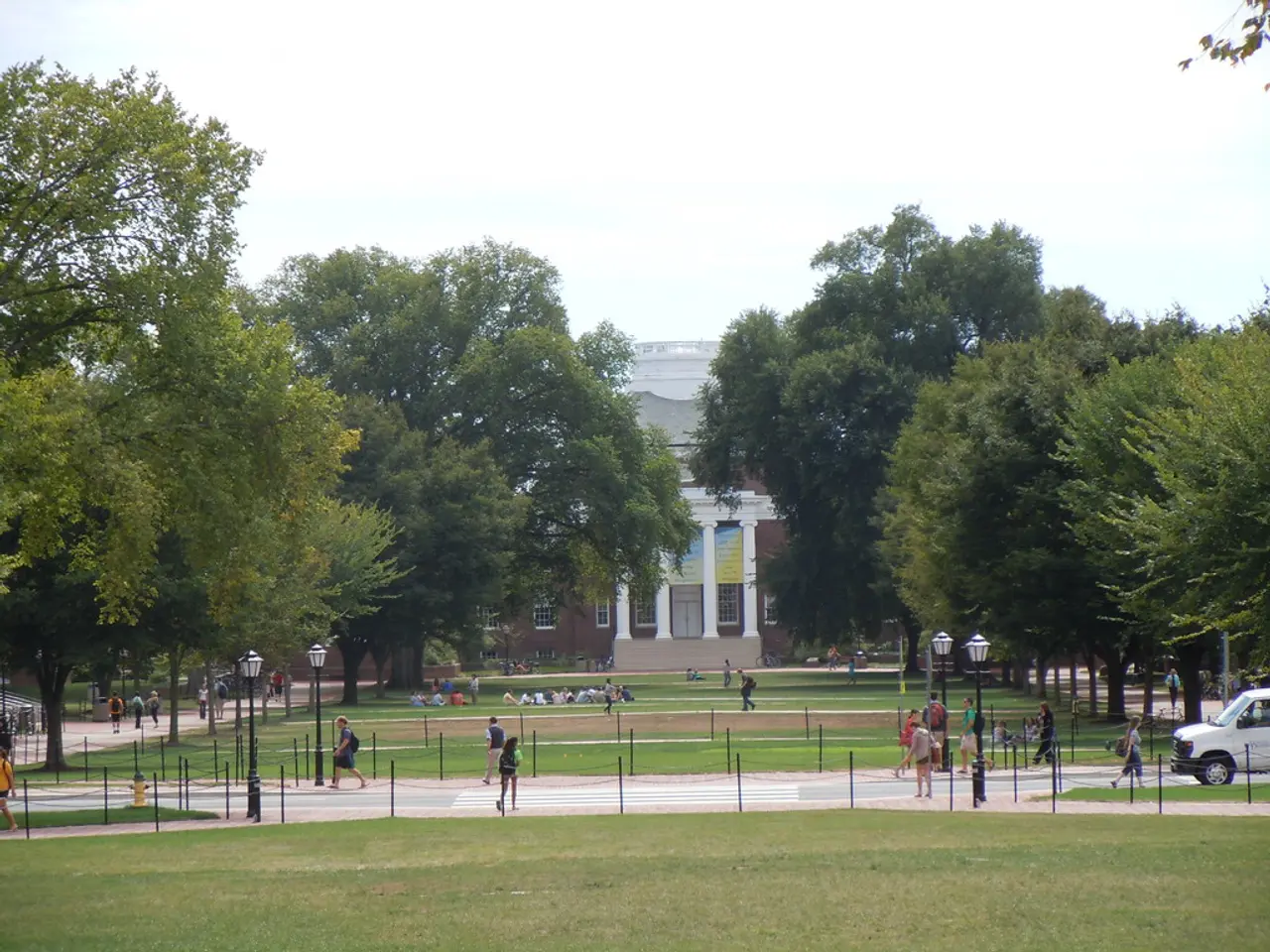Collaborative Approach: Harmonious Partnership Between HSHL and the University of Kiev
In the face of significant challenges, Ukraine's expansion of renewable energies has made impressive strides, with Kyiv playing a pivotal role in advancing the sector through legislative reforms, infrastructure development, and international cooperation. This evolution is not only a national priority but also aligns with broader European integration and support frameworks, such as the cooperation between the University of Applied Sciences Hamm-Lippstadt (HSHL) and the National Technical University "Kyiv Polytechnic Institute Ihor Sikorskyj" (NTU KPI).
The partnership, which began on June 1, 2019, focuses on promoting education, research, and innovation through the exchange of students, faculty, and scientific staff. Notable achievements include:
- Student Mobility: The joint ERASMUS+ project started with ten student mobilities in 2023, providing Ukrainian students with opportunities to study in Germany and vice versa. In 2019, a DAAD project enabled Ukrainian students to study in Germany as part of the cooperation.
- Faculty Engagement: In 2021, Ukrainian faculty participated in the lecture series "Intercultural Work" as part of the cooperation, fostering cross-cultural understanding and collaboration.
- Academic Exchange: In 2024, Ukrainian students will participate in the HSHL Summer School "The Business of German Engineering," further strengthening academic ties.
- Research Collaboration: Two KPI students completed an internship at the Institute for Sector Coupling in the Energy Transition (IfSK) in Hamm, developing simulation models for sustainable energy supply in industrial areas in 2025.
The cooperation's ultimate goal is to develop academic, scientific, and cultural ties with NTU KPI, one of the most renowned Ukrainian universities. This partnership is particularly significant during times of war, as it fosters scientific exchange and supports Ukrainian researchers, demonstrating the importance of international cooperation.
While specific reports on cooperation between Hamm and Kyiv are limited, the broader context suggests that this collaboration forms part of the support network enabling Ukraine's transition to renewable energies. With Hamm's experience in renewable energy and energy transition, there is potential for knowledge exchange, technology transfer, or joint projects under EU or bilateral programs supporting Ukraine's reconstruction and renewable energy expansion.
Ukraine's renewable energy expansion in 2025 is marked by significant commissioning of capacity, legislative modernization, and international engagement, yet it faces daunting war-related damages and the need for substantial investment and regulatory evolution. Key progress points include:
- Rapid Deployment of Renewable Capacities: Ukraine commissioned 600 MW of distributed generation based on renewable sources and natural gas in 2025, with expectations for another 800 MW by year-end, reflecting strong growth in both public and private sectors for renewables like solar and wind.
- Focus on Decentralization and Digitalization: Post-war reconstruction has prioritized decentralized generation models supported by smart grids and advanced energy storage systems to create a resilient and sustainable energy infrastructure.
- Legislative Alignment with EU Standards: Ukraine is accelerating its legislative agenda to integrate EU directives, including those on electricity market liberalization and renewable energy investment incentives, ahead of initial timelines.
- Digital Register and Transparency Tools: The launch of a digital register of renewable energy facilities enhances transparency and strategic planning for renewable deployment across Ukraine.
However, challenges remain significant, including war-related infrastructure damage, financing and investment, and technical and regulatory adaptation. Despite these hurdles, the cooperation between HSHL and NTU KPI, and similar partnerships, are vital in supporting Ukraine's transition to a sustainable and renewable energy future. The extended ERASMUS+ project between HSHL and NTU KPI will continue until July 31, 2026, ensuring the ongoing development of academic, scientific, and cultural ties between the two institutions.
The partnership between the University of Applied Sciences Hamm-Lippstadt (HSHL) and the National Technical University "Kyiv Polytechnic Institute Ihor Sikorskyj" (NTU KPI) is pivotal in fostering education and self-development, as it focuses on promoting student mobility, faculty engagement, academic exchange, research collaboration, and building academic, scientific, and cultural ties. This collaboration is crucial in supporting Ukraine's transition to a sustainable and renewable energy future, particularly during challenging times like the ongoing war, as it helps Ukrainian researchers and demonstrates the importance of international cooperation in education-and-self-development.




